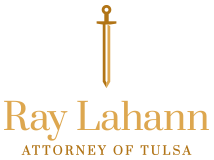Reports about fatal work accidents in industries known to be dangerous are not uncommon. However, fatal accidents in bowling alleys are not common at all. Even so, a recent incident is a reminder to Oklahoma residents that hazardous conditions that can result in a workplace injury can exist in almost all industries.
A worker at a bowling alley in another state was recently shocked to find his colleague, who had been a maintenance worker for nearly four years, deceased. The deceased worker’s duties included maintenance of the equipment, so, when a problem occurred on one of the bowling lanes on a recent Thursday, he was sent to investigate and repair the malfunction. When he failed to respond to calls from fellow workers, they became concerned and went to check on him.
A spokesman for the U.S. Occupational Safety & Health Administration (OSHA) said that although the coroner would determine the cause of death, initial findings indicate that the man’s clothes were caught in the working mechanisms of the machinery that operates the placement of the pins. It is the responsibility of company owners and employers to ensure that workers are aware of prescribed safety regulations, such as turning off the power source to equipment before working on it. The ongoing OSHA investigation will determine whether the owner of the bowling alley was negligent in his duties to ensure worker safety.
If an Oklahoma worker dies after suffering a fatal workplace injury, the surviving family members may be entitled to claim death benefits through workers’ compensation. While the circumstances of each claim are different, the surviving spouse, parent or children may receive compensation for funeral and burial expenses. In addition, a financial package based on the salary of the deceased worker may provide the dependents with some level of financial assistance.
Source: fox19.com, “OSHA investigating bowling alley worker death“, Nathan Vicar and Brett Hoffland, Nov. 6, 2014

